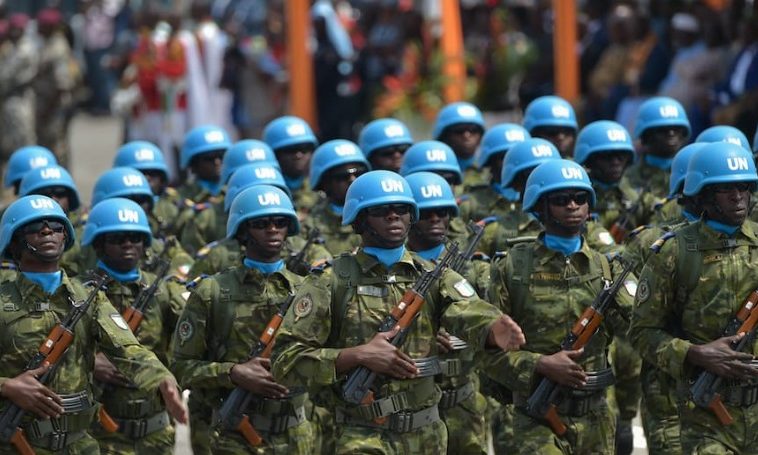The trade relationship between the European Union (EU) and Africa dates back a long time, and currently, the EU stands as Africa’s largest trading partner.
In terms of specific industries, the EU is Africa’s largest export destination for agricultural products and mining goods, while the EU is the largest source of imports for manufactured goods, machinery, and transport equipment.
As partners, there have been mixed records of trade deficits and surpluses between the two continents over the years, owing to so many reasons.
This write-up will highlight the balance of trade between the EU and Africa using available statistics from 2011 to 2022.
Europe’s trade alliance with Africa is primarily focused on manufactured and other primary goods.
For the EU, its exports to Africa are mainly manufactured goods like machinery, pharmaceutical products, chemicals, and the like, while African exports to the EU consist of primary products like fuel, food products, drinks, and commodities like ores, metals, and other minerals.
While the goods on offer for imports and exports differ, trade between them has been on an upward trend in recent years despite the asymmetric nature of the trade, wherein the African international trade balance with the EU often stands in the negative with the surplus recorded mostly in favour of the EU.
As a result of this trade imbalance, Africa accounts for only 2 percent of the EU’s total trade with its trading partners across the globe (both imports and exports).
Though the lopsided nature of trade between the two dates back decades, data from relevant trade and statistics agencies as well as researchers attributed this negativity to the low share of Africa’s exports to the overall world trade and the concentration of exports in a few mainly resource-based products like agricultural and natural resources, which expose the exports to external demand and price shocks as well as logistics challenges, among others.
Overall, in terms of exports, the EU accounts for about 26 percent of all imports in terms of value into African countries, just as the EU remains Africa’s best destination for exports, accounting for 26 percent of African exports in value.
Since 2014, the EU has enjoyed a trade surplus in their trade, with Africa getting to its highest form in 2016 when it recorded a surplus of €33 billion. However, two years down the line in 2018 and later in 2019, the surplus was reduced to €8 billion, and by 2020, due to the COVID-19 pandemic, exports dropped by €20 billion while imports fell by €35 billion, which increased the trade surplus for the EU to €24 billion.
Though imports and exports dropped, by 2020, the total trade between the two was worth around €280 billion, with the EU accounting for about half of Africa’s total trade.
Between 2011 and 2020, products exported from the EU to Africa were valued at €1.382 trillion, while those exported from Africa to the EU accounted for €1.286 trillion with a trade balance of €96 billion.
In 2021, African exports to the EU increased by €41 billion, while the EU also recorded an increase of €21 billion in goods exported to Africa, thereby bringing the EU’s surplus to just €4 billion after all deductions and additions.
|
|
|
|
|
|
By the end of 2021, twenty-one EU member countries, such as Belgium, Germany, Ireland, Sweden, and Poland, recorded a trade surplus of over €1 billion each, while others, like Italy and Spain, traded in deficits for the year.
As much as the EU trades with Africa, it is worth noting that northern Africa benefits more from the trade. Between the periods of 2011 and 2021, Northern Africa recorded more exports from the EU, with figures rising to €76.1 billion in 2021 from €58.6 billion in 2011. The EU also enjoyed more imports from the northern region than other parts of Africa in the corresponding period.
According to 2022 figures from Eurostat, imports from Northern Africa formed nearly half of all imports from Africa in 2021.
That is not to say other African countries are not trying because, alongside the northern African countries of Algeria, Morocco, Egypt, Tunisia, and Libya, which are tagged as the largest trading partners with the EU, other countries like South Africa, Nigeria, Ghana, Cote d’Ivoire, Cameroon, Togo, Equatorial Guinea, Senegal, Angola, and Kenya are also doing relatively well in trade with the EU.
These 15 African countries were termed the most important trading partners, with the EU exporting 88.9% of products worth €1.14 trillion to the 27 EU countries between 2011 and 2020, while the EU exported 87.0% of goods worth €1.19 trillion to the 15 African countries within the same period.
|
|
|
|
|
|
With these figures, the EU had a slight edge in surplus in terms of exports to import percentage over eight of the African countries, while the remaining seven African countries had positive trade balance surpluses, having recorded more exports than imports in the period.
What these figures depict is that over the years, the flow of goods from EU-27 countries to Africa has been relatively stable compared to that of Africa, which keeps fluctuating majorly in the negative.
Moving on, both parties are putting in more effort to strengthen economic ties using various initiatives and economic agreements like the Economic Partnership Agreements (EPA), which promote trade and investment opportunities in Africa and see to it that trade is balanced between them.
The EU is also proposing sustainable investment agreements with Africa under its new EU trade strategy launched in
2021, to increase its engagement with African partners to open up the economies for inclusive growth.
In the same vein, the two continents, in the wake of the changing global context, are undergoing repositioning, which has been particularly favourable to Africa as it has been able to diversify its trade partners.
Notwithstanding that, trade relations between the EU and Africa are evolving and will continue to create more opportunities, open up markets, promote industrialization, enhance competitiveness, and contribute to the overall development of all economies involved.


